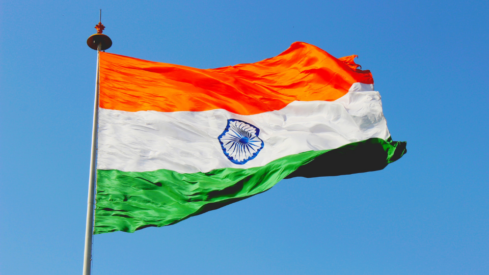These are the areas that are expected to fuel the Indian pet industry

With grooming and accessories becoming the fastest-growing categories, local industry leaders discuss the challenges and opportunities that could take the sector to the next level.
The Indian pet industry is growing at an exciting speed through large investments. But what lies ahead for this booming industry? At the Indian Pet Industry Dialogue (IPID) held in New Delhi a few months ago, regional pet players discussed upcoming trends relevant to stakeholders, manufacturers, investors and business owners.
Shifting to commercial food
One of the key challenges to the Indian pet food industry is finding ways to shift pets from a home-cooked diet to manufactured pet food.
The calorie conversion rates in India have increased to 6–8% for the combined population of dogs and cats.
According to industry players, the steady rise in pet parents opting for manufactured pet food directly links to increased product accessibility, education about pet nutrition and pet humanization.
Pet products and services
Since 2020, the pet industry in the country has registered an annual growth rate of 22%. Given the increase in per capita income and a higher willingness to spend on pet products, the trend of premiumization of products and services is expected.
“When the pet population is growing and the calorie conversion is limited, the only way to grow is premiumization across services like grooming, training and more,” says Satinder Singh, Regional Director of Royal Canin India.
“The premiumization journey has not even started in India, which means there are many opportunities in not only food but across the entire lifecycle of a pet.”
Singh adds that the quality, convenience and affordability of products are what will eventually pave the way for a “more accepted” premium market.
Grooming and accessories
Grooming and accessories are 2 of the fastest-growing pet categories in India, according to Bharat Pittie, Director of Orange Pet Nutrition, an importer and supplier of pet supplements and prescription diets.
When it comes to specific pet products, he predicts that supplements—like meal toppers or vitamins—are expected to gather quick interest from Indian pet parents. This is also linked to nutritional awareness, encouraging pet parents to combine home diets with pet supplements.
Similarly, prescription diets through veterinary channels are likely to see fast growth with a gradual shift toward specialized pet food according to breed, age, nutritional requirements and more.
Opportunities and changes across DTC
DTC companies have a huge scope within the South Asian country for their quick delivery and easy browsing options. However, on large platforms like the Indian instant delivery service Blinkit, the lack of consumer awareness about the availability of pet care products slows down industry proliferation on this channel.
Kunal Kochal, Associate Director at Zepto, notes that targeted product sampling helps establish a purchasing habit among pet parents. “For normal munchies or biscuits, it takes [around] five orders for a customer to retain to that platform. For pet care, it’s actually faster than that—it’s three to four orders,” he admits.
Consumers’ willingness to try new products, sustained product quality and the brand’s ability to launch products at different price points accelerate a brand’s growth.
Ambarish Sikarwar, Business Head at omnichannel pet care platform Zigly, notes that customer retention is another challenge for all D2C platforms. “It is 5 times more expensive to acquire new customers than retain them,” he shares. Here, post-sales service and overall customer satisfaction help in establishing client trust.
Finally, D2C players, which only cater to pet products and services, are in direct competition with larger online grocers for quick doorstep delivery, sustainable packaging and managing heavy delivery of products over 20kgs. For Shubhesh Goel, Founder of online pet store Basil Petcare, quick same-day delivery is not a key requirement for most online shoppers in the pet care segment.
Companies ahead of time
The focus of Indian pet industry investors may shift from e-commerce to niche pet care sectors.
Madhurita Gupta, Founder of venture capital firm Goa Angel Network, says the e-commerce segment is “completely saturated.” “The future is innovation,” she continues.
“As an investor and a domain expert, we always look out for the companies which are ahead of the times, who are very futuristic in their approach,” she added, pointing toward products in the pet-tech space like biometric-based innovative trackers or companies offering green alternatives to pet cremation.
Paritosh Srivastava, Investment Principal at Anthill Venture VC Funds—the firm that invested $5.5 million in Wiggles last year—added that investors are currently looking for “scalable” problem-solving and solution-based products across niche pet care segments such as pet nutrition and healthcare.
He further notes that holistic healthcare services for exotic animal care, platforms boasting veterinary diagnostics and teleconsulting platforms have thus become key areas of interest for angel investments.
